Made in Wales: From Basque Boy to Spanish goalkeeping star
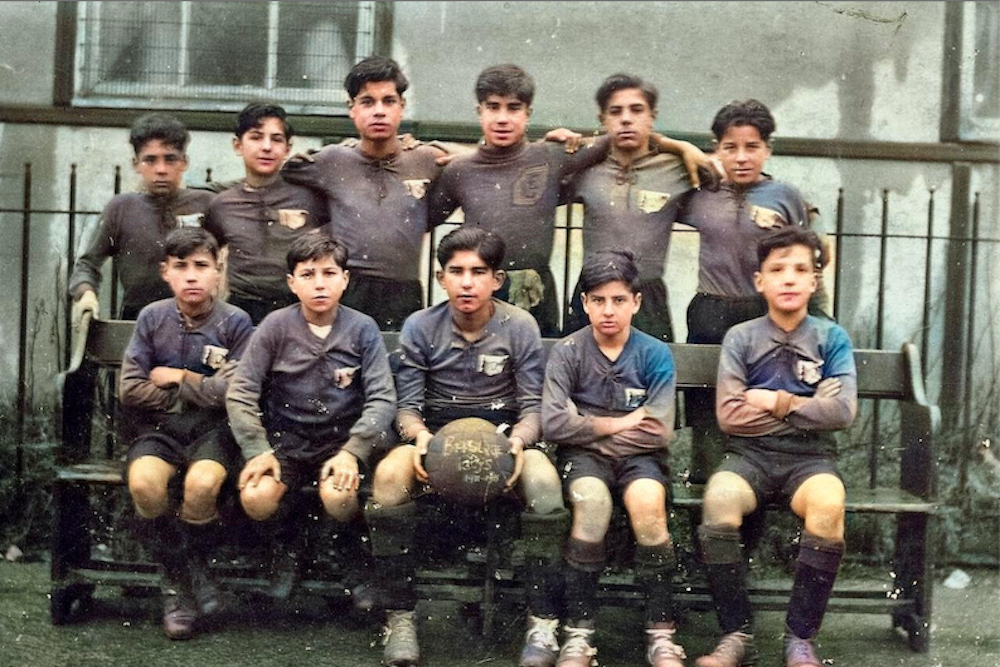
Christopher Evans
A recent three-day event in Caerleon commemorated the 85th anniversary of the arrival of the Basque children refugees in Wales.
Organised by the Basque Children of ’37 Association, there was a specific focus on the importance of football to the niños vascos (Basque children).
Football played a huge part in the children’s lives in Wales, particularly in the colony of Caerleon (see previous Nation.Cymru articles HERE and HERE). It was a form of escapism, a pastime to help them forget about the horror of the civil war that was raging back home.
The creation of the team – Basque Boys AFC – allowed the boys to bond, to create an atmosphere of camaraderie and solidarity, and most importantly, have hope.
It was also a way of integrating and connecting with the local communities within Caerleon and the south of Wales. The boys helped to raise funds for the running of their lodgings, Cambria House, by selling tickets and matchday programmes.
The team created quite a storm throughout Wales, having great success and rarely losing a match. Their biggest achievement came when they beat the league champions Moorland Road School in front of a few thousand spectators at Ninian Park on the 10th May 1939.
Amazingly, there were three sets of brothers in the team (the Garateas, the Achas and the Espigas). What is not as well-known is the success of one of those brothers, the Basque Boys AFC goalkeeper, Enrique Garatea.
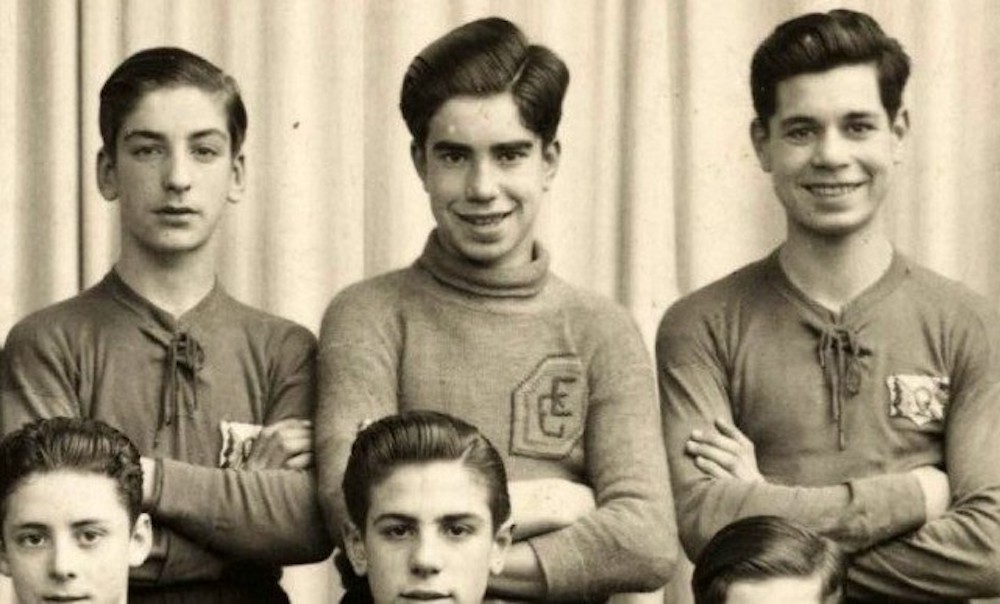
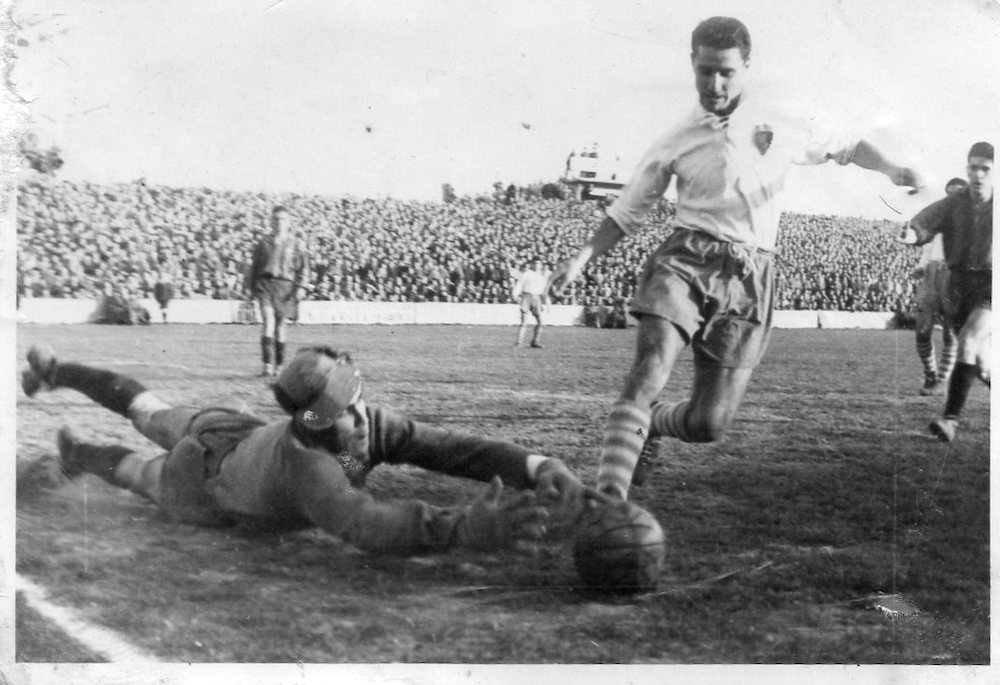
New information has recently been discovered in the archives of the Basque Children of ’37 Association, which sheds more light on the talented Garatea’s life and career.
Following an exhibition at the San Mamés stadium, the home of Athletic Club de Bilbao, Garatea’s daughters, María Angeles Garatea Beltran de Heredia and Estibalitz Garatea Beltran de Heredia, also gave more information about their father after they were shown photographs of him during his time in Caerleon that they had previously never seen.
Born in Sestao, Biscay, in 1924, Garatea was one of almost 4000 children aboard the SS Habana that arrived in Southampton on 23rd May 1937. Following the bombings of Durango and Guernica, his parents, like many others, had been left with no choice but to send their children to the safety of foreign shores.
Cyril Cule, the director of Cambria House, wrote detailed descriptions of the personalities of every child who arrived in Caerleon in his unpublished manuscript ‘The Spanish Civil War: A Personal Viewpoint’.
Of Garatea he said:
“Enrique, on the other hand, is a sturdily built boy of 11; big for his age, bright eyed and vivacious. Filled with healthy mischief, yet attentive to his studies and rather clever, he seems in the security of Cambria House to be a typical boy.
“Sometimes he shows traces of nervousness even now, which may be accounted for by the ordeals he has undergone, and by the fact that he seldom has news of his parents. These have been torn apart by the war and are somewhere in Northern Spain.”
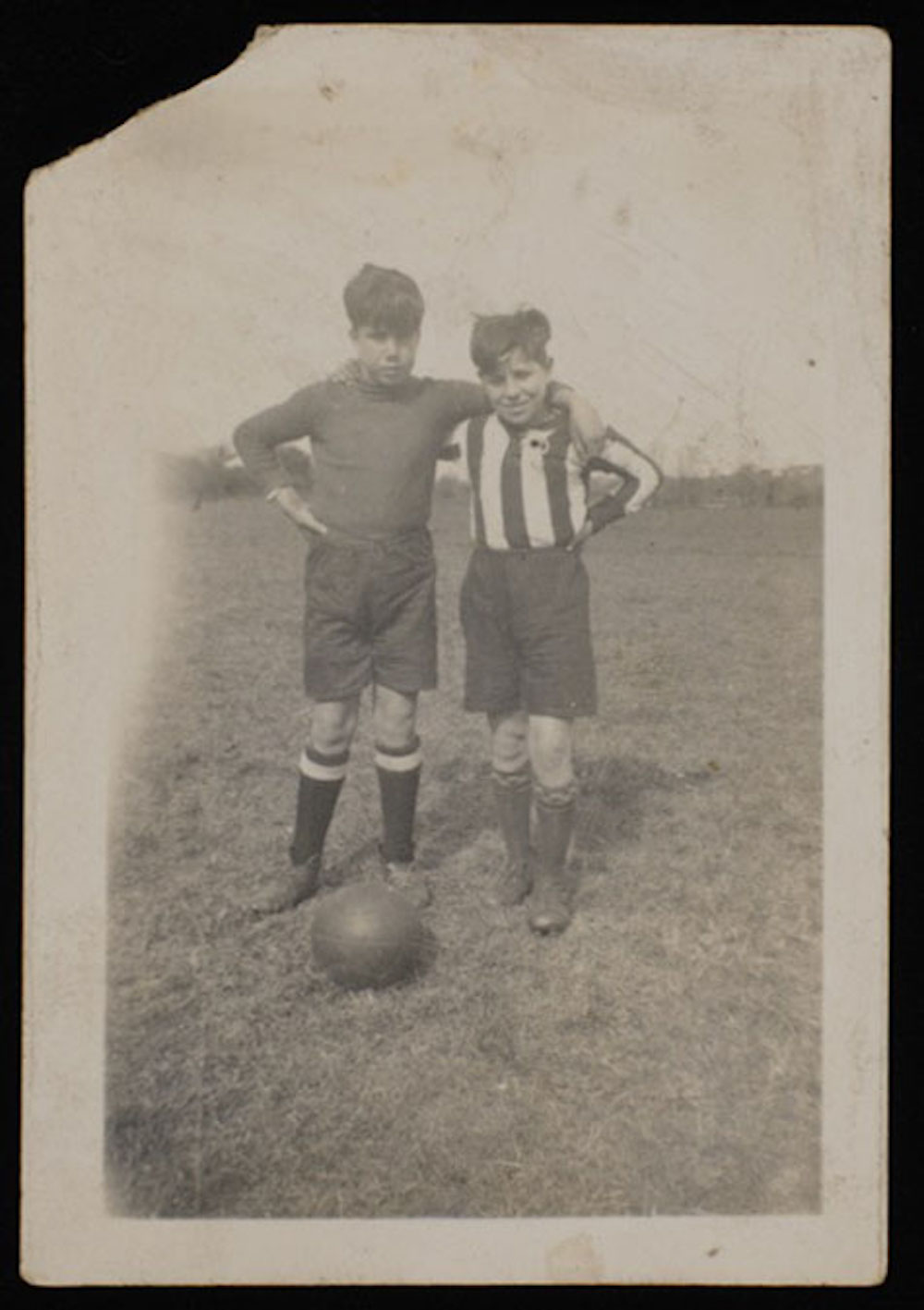
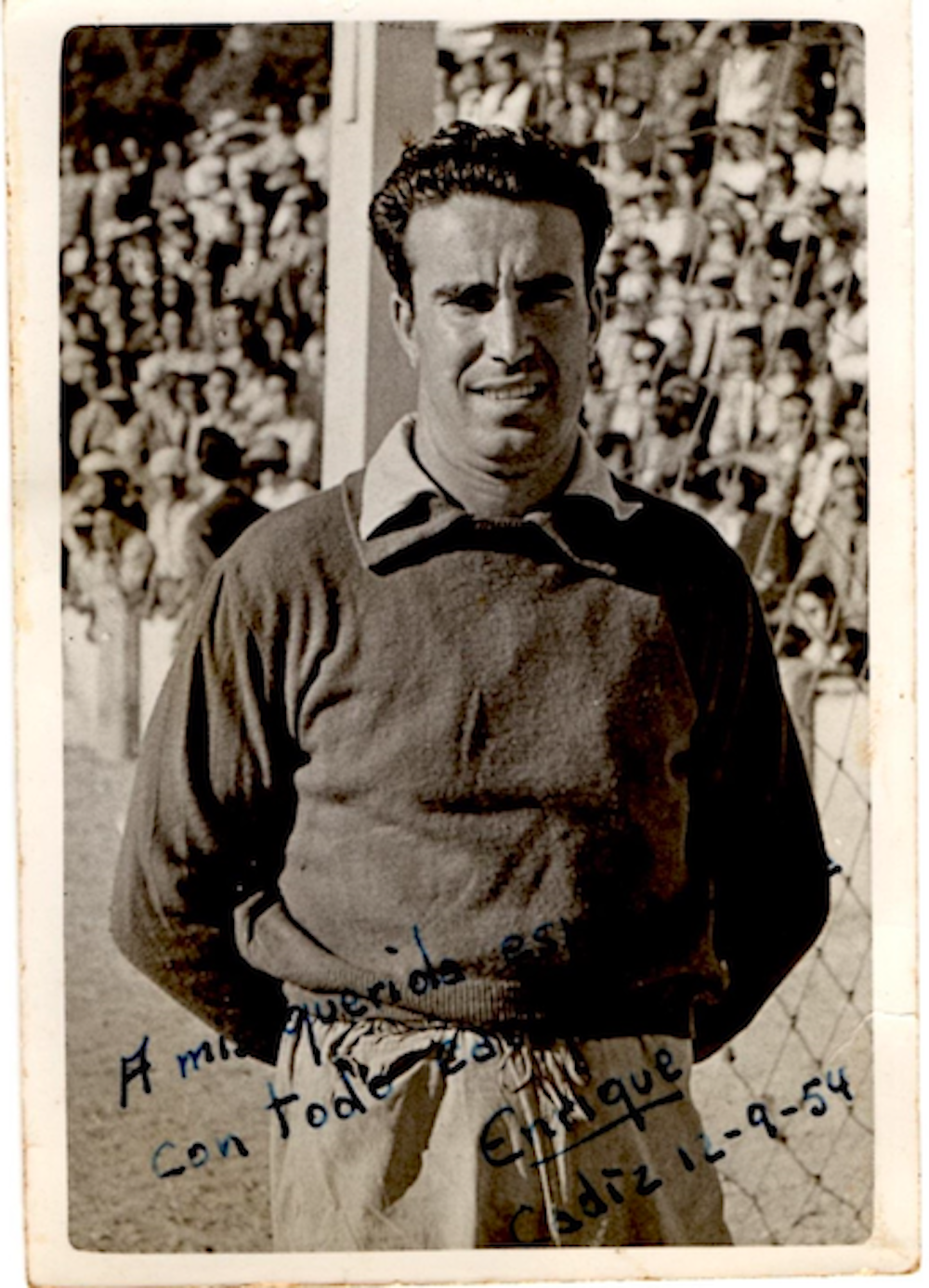
As the Basque Boys began to enthral local football fans, it became clear that Garatea was special. Under the tutelage of Newport’s Mr S.H. Gibbon, a locally renowned coach, Garatea, along with captain Juan Antonio Hernandez, began to flourish.
Mr Gibbon, an old-school and stern coach, taught the boys tactics by using a billiards table with counters to represent players. He only allowed the boys on to a football field with a ball after five weeks of this chalk-and-talk schooling.
Garatea, who was unaware of the fate of his parents back home for over two years, immediately gained the attention of Newport County and Cardiff City.
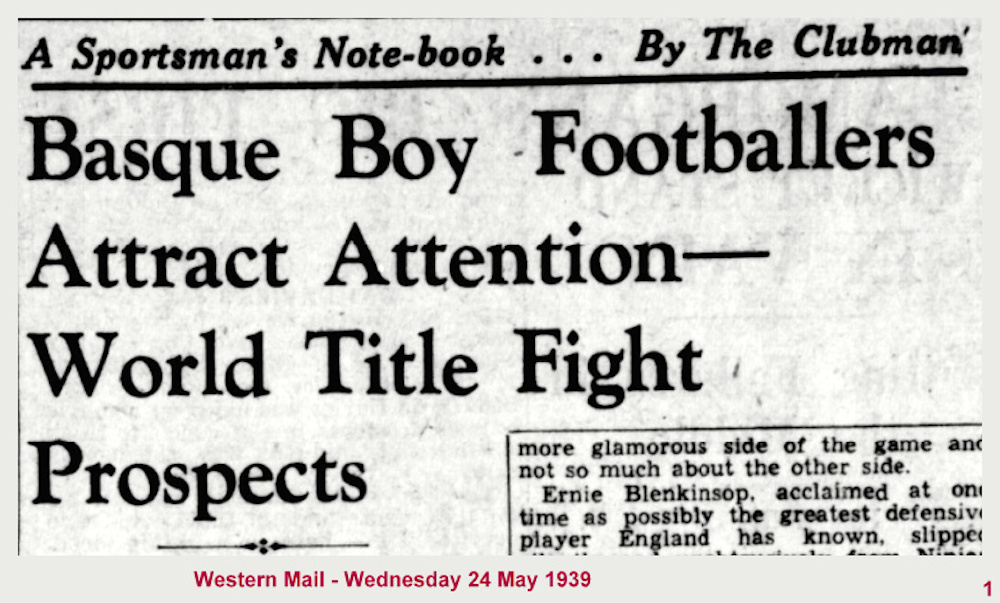
However, soon after their amazing win at Ninian Park, Garatea was overjoyed to discover that his parents were alive and well in the Basque Country.
The Daily Mirror (Saturday 27th May 1939) reported that the young goalkeeper had “thrown up a chance to make football his career and has sailed home.”
They wrote:
“Lad is Enrique Garatea, aged thirteen. Ever since he started playing soccer for the first time in the Basque refugee’s camp at Caerleon, he shaped so well that several League club managers were prepared to give him work until he reached signing-on age. But Enrique has given up all thoughts of the game now that he knows his parents are safe.”
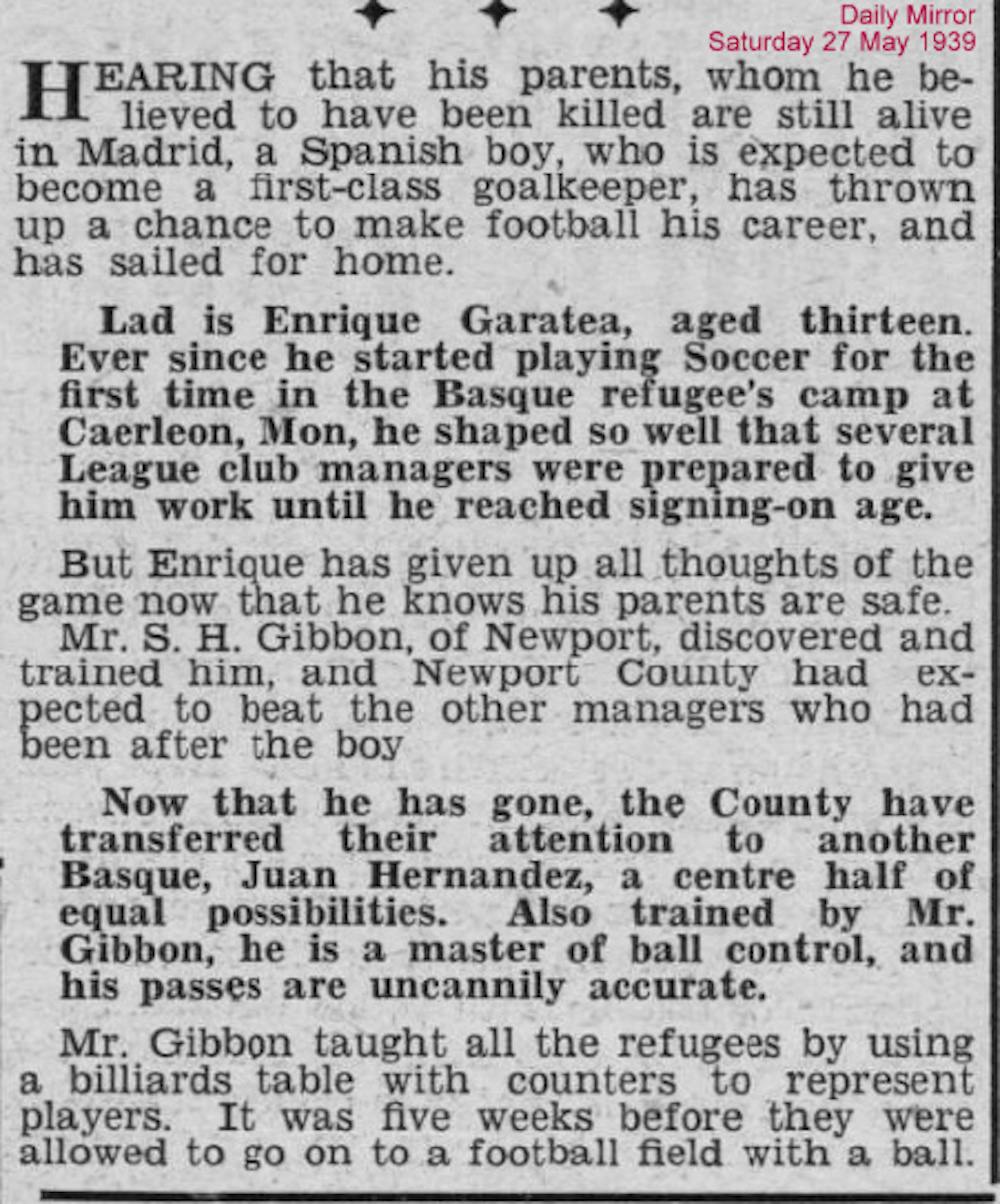
This bewildering reporting, that a professional career had been wasted, rather than focusing on Garatea’s joy that his parents were alive, was also the angle of The Western Mail (24th May 1939):
“Because the ties of kinship mean more to Enrique Garatea than football fame, perhaps one of the finest goalkeepers of all time will be lost to the realms of Soccerdom. I say perhaps, because things are not always what they seem, and Enrique in five years’ time may not fulfil the promise he has revealed as a boy of 13. Yet, how many boys of 13 are so much sought after?
“Last week, however, something happened which filled Enrique with overwhelming joy, but shattered his hopes of attaining fame as a footballer. In short, he heard that his parents, whom he never expected to see again, were living, and he yearned to return to them. So last Sunday he sailed for home and left behind him dreams of what he might have accomplished.”

What these parochial reports didn’t foresee was that the UK wasn’t the only place where the young goalkeeper could prosper, and after his return to the Basque Country, Garatea would go on to have a long football career in Spain, turning out for CD Touring, Calahorra, Huesca, Torrelavega, Tenerife and Cádiz.
The peak of Garatea’s career came when he joined Spanish giants Atlético Madrid in 1952, although he did not make an official appearance for Los Colchoneros.
Garatea married Paqui Beltran de Heredia on December 27, 1952 and had two daughters. Not long after becoming a father, the shot-stopper retired from football. Garatea became a family man and worked in in a factory in Pasaia, a small town near Donostia-San Sebastian.
Garatea (top right) lines up in front of a packed crowd in Spain (Credit: María Angeles Garatea Beltran de Heredia and Estibalitz Garatea Beltran de Heredia – the daughters of Enrique Garatea)
Reminiscing about her father from her home in Errenteria, Gipuzkoa, 67-year-old Estibalitz said: “My memories are the normal ones between a father and daughter. Getting along and making a family life when he wasn’t working. He was a hardworking, close, kind, humble and willing to help person. He really liked to climb mountains and we often went on mountain outings together.”
Estibalitz regrets that she never got to see her father play football, but added that he would talk about his time in Wales with calmness, and that he was “lucky enough to return to Wales” on one occasion on a trip organised for the children of the civil war by the Basque Government.
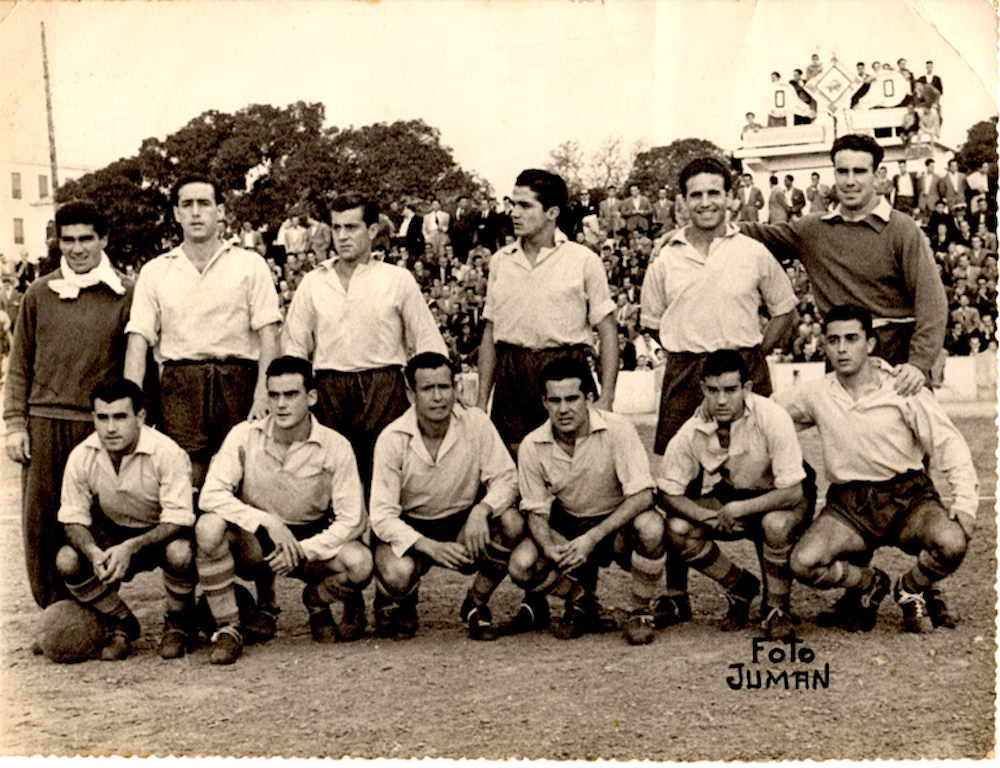
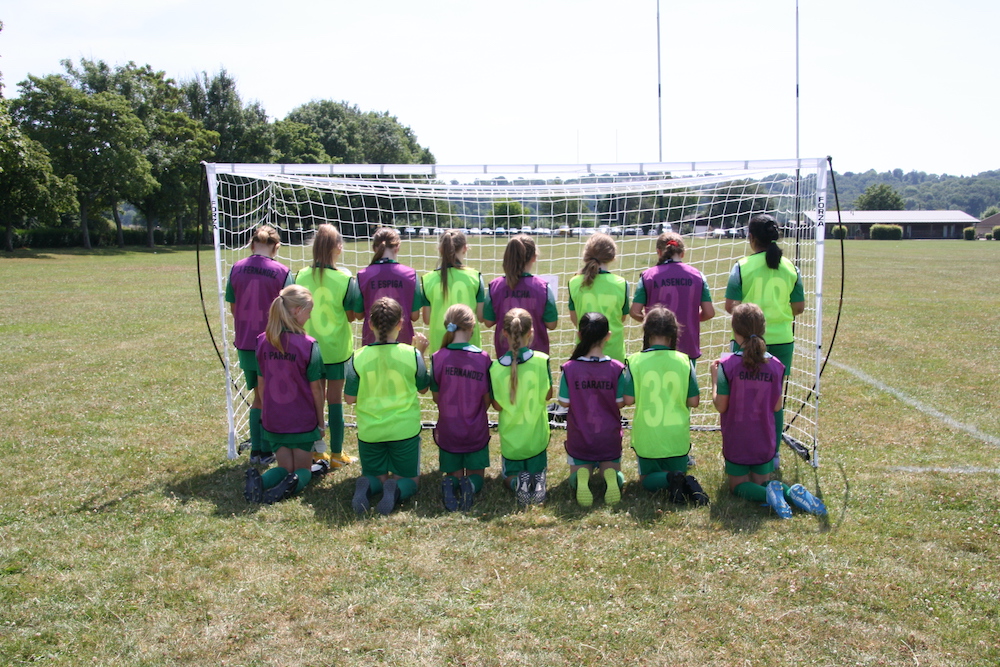
At an exhibition match in commemoration of the boys at Caerleon playing fields, Garatea was represented local girls from Caerleon AFC. Garatea’s daughters were “very moved and excited” to see their father’s name on display in the fields where he learnt his trade in Caerleon 85 years ago.
Football is universal. It brings people together. It crosses social, historical, political and language barriers. Football is an international language of sorts. It gave the young Enrique Garatea hope, sanctuary, and opportunity in a foreign land, where he had been sent away from the atrocities of a senseless war – something that resonates so strongly with what is happening now in the Ukraine.
Enrique Garatea died on September 19, 2012 at the age of 88.
Note: A special thanks must go to Gaizka Garamendi in the Basque Country, whose archivist skills are unparalleled.
Support our Nation today
For the price of a cup of coffee a month you can help us create an independent, not-for-profit, national news service for the people of Wales, by the people of Wales.





